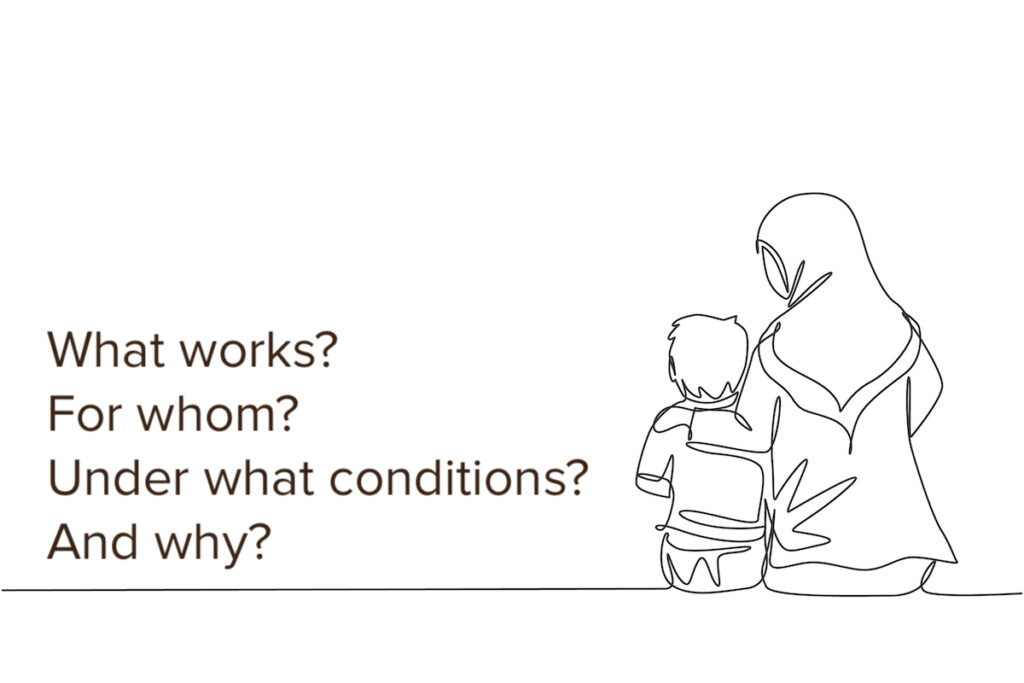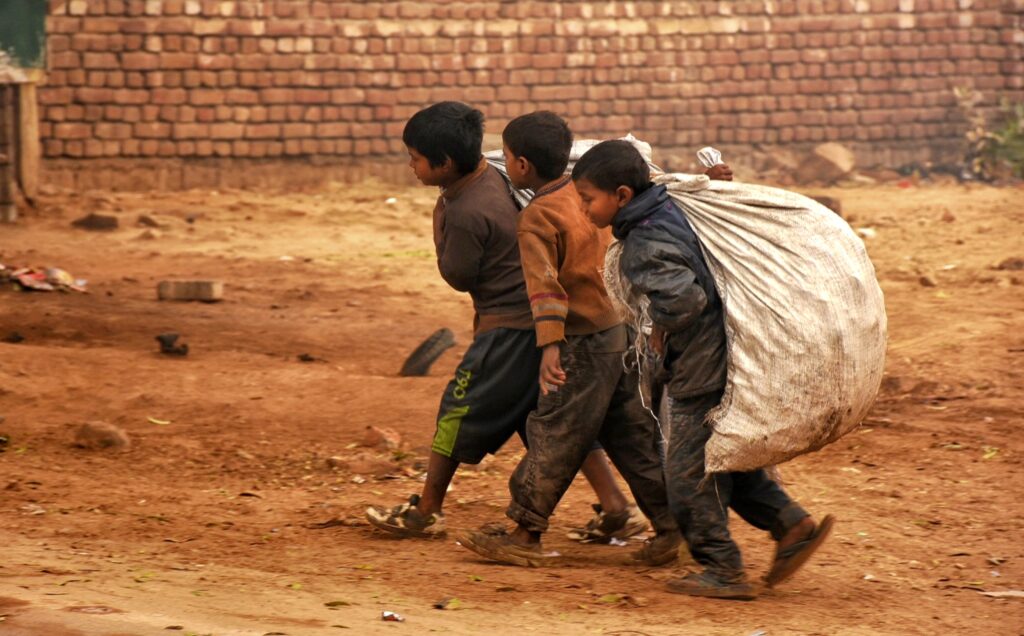
Practice guidelines are increasingly recommending that families are involved in the prevention and treatment of anxiety and depression in young people. This is due to the substantial contribution of family-related factors in the development and maintenance of emotional problems (Poole et al., 2018). The vulnerability of young people to emotional problems is influenced by the quality of their interactions with their parents and family, the quality of communication among family members, and the responsiveness of the family towards adolescents’ needs (Wang, Pomerantz & Chen, 2007). Evidence shows that children who are warmly nurtured and raised in an affectionate environment are less likely to develop mental health problems (Fleming et al., 2008). Conversely, children of more controlling and demanding and less affectionate parents are more likely to develop emotional problems and maladjustment (Awiria, 1994; Georgiou et al., 2013; Rinaldi & Howe, 2012; Rogers, Buchanan & Winchell, 2003).
Family-based interventions for youth mental health have the potential to not only prevent/treat adolescent mental health problems, but also contribute to reducing parental stress and improve parental functioning. Studies show that parent skills training increases family support for adolescents with internalising problems by increasing parental knowledge and competencies to address emotional problems in young people (Jones & Prinz, 2005; NICE, 2019). However, the conceptualisation of family support and its impact on youth anxiety and depression as an active ingredient has not been explored yet. Moreover, it is not yet known which element of family based interventions work for whom, under what conditions and why. This information could potentially be important in designing and tailoring psychological interventions to improve mental health outcomes in particular target groups and ensuring that scarce resources are invested in the most cost-effective interventions, especially in low resource settings.
In this blog, we discuss the findings of a systematic review by Pedersen and colleagues (2019) who explored the evidence on the role of family and parents to improve child and adolescent mental health and caregivers’ outcomes. The review also aimed to identify the common practice elements (active components) of effective parent/family-focused interventions to improve mental health in young people, living in low- and middle-income countries (LMICs).

Parents and family members have substantial influence on the mental health of children and adolescents, but we still don’t know which elements of family-based interventions work for whom, under what conditions and why.
Methods
For this systematic review, Pedersen and colleagues searched 5 databases to identify relevant studies published from 1967 to 2017. For inclusion studies had to:
- Be a parenting/ family intervention
- Have been delivered in a LMIC
- Have collected quantitative data at baseline and endpoint
- Have assessed improvement in mental health or wellbeing in young people or caregivers.
The common practice elements of effective family-based interventions were identified using Practice Wise Coding system (a coding system of identifying and selecting the common elements of evidence-based mental health interventions by breaking down the interventions into their working components or ‘active components’). The provider and beneficiary of the treatment techniques along with codes were also identified.
Results
The authors included 32 studies in the review. The study designs included pre-post designs, non-randomised controlled trials and randomised controlled studies. The methodological quality of half of the studies was assessed as ‘low’. Fifteen studies lacked information on blinding and statistical power of the study sample. The interventions were categorised into parent or family-focused interventions.
| Parent-focused interventions | Family-focused interventions | |
| No. of studies | 14 | 18 |
| Target population | Parents | Extended family members (grandparents, aunt, uncle and foster parents). Participants (child or caregiver) were affected by HIV, anorexia nervosa, cancer, depression, anxiety, PTSD, violence. |
| Types of intervention | Parent skill training (N=6), psychoeducation, behavioural therapy, quality of life therapy | Psychoeducational, skill building interventions |
| Format of delivery | Primarily group, some individual + group format | Primarily group |
| Delivered by | Mental health practitioners (N=6), lay health workers / non-specialists (N=8) | Primarily non-specialist workers |
| Outcomes | Parenting practices & behaviours
Parent-child / family relationships Behavioural and internalising problems in young people |
Family connectedness & functioning
Parent-child / family communication Parents mental health & social support Young people internal symptoms: anxiety, depression, grief, PTSD Young people external symptoms: conduct problems |
The reviewers found 28 parent- and family-focused interventions that showed a significant positive result on the child and adolescent mental health and wellbeing outcomes, as well as on parent and family related outcomes in LMICs. These included: psychoeducation, parent and family skills training, behavioural interventions, psychosocial interventions, and trauma-focused cognitive behavioural therapy.
Psycho-education was present in all effective interventions (n=28). The other most common practice elements were: caregivers’ coping, homework and accessibility promotion.
Conclusions
Keeping in view the promising impact of parent and family-based interventions on mental health outcomes in adolescents living in resource poor and war affected settings, Pederson and colleagues highlighted a need to identify the active components of parent and family-based interventions to optimise treatment outcomes in adolescents.

The most common ‘active components’ of effective family-based interventions were psycho-education, caregivers’ coping, homework and accessibility promotion.
Strengths and limitations
Pederson and colleagues have made an important contribution to the field by exploring the evidence on the effectiveness of parent-family based mental health interventions. This is particularly important in the context of LMICs, where young people are exposed to multiple chronic adversities and are at-risk of developing mental health problems. The identification of common practice elements of parent-family focused mental health interventions is helpful to develop and implement targeted effective interventions to improve adolescent mental health outcomes in low resource settings. However, given the present study is a systematic review of literature, future studies would benefit by conducting a meta-analysis of data to quantify the impact of parent-family focused interventions on youth anxiety and depression.

This review makes an important contribution to the field by exploring family-based mental health interventions in LMICs where young people are at higher risk of developing mental health problems.
Implications for practice
- Future research will benefit by including studies with rigorous and methodologically sound study designs (RCTs) to ascertain the treatment effects of parent/family-based interventions on youth depression and anxiety.
- Future research could focus on key moderators such as demographic characteristics of study sample, study settings or parent symptomatology that may influence treatment effects in young people.
- Sub-group analysis along with the identification of active elements of parent-family focused interventions and the relative impact of parent-family interventions’ when combined with other components of psychological interventions still needs to be explored.
- Lastly, understanding young people perspectives about the role of family support interventions to prevent and treat youth anxiety and depression could potentially be important in designing and tailoring targeted psychological interventions to a particular target group.

Future research on family-based interventions in LMICs should use methodologically sound study designs, focus on key moderators and consider sub-group analysis.
Our active ingredients project: Family support to prevent youth anxiety and depression
As part of our Wellcome Trust funded Active Ingredient research project, we synthesized the experimental literature on parent and family interventions and integrated the findings with youth and family perspectives. According to young people, family support in the prevention of anxiety and depression means providing a safe environment to the child; showing them affection and having an open, empathetic and non-judgmental communication with them. With respect to the treatment, the expectations of young people from parents are to support them in seeking treatment; provide them emotional support throughout the treatment process and in following the treatment regime.
Our active ingredients review indicates that family-based interventions combined with cognitive behavioural therapy (CBT) are highly effective in treating anxiety and depression in young people. All studies included in the review were from High Income Countries (HICs), highlighting a major research gap on examining the impact of family support on adolescent anxiety and depression in Low- and Middle-Income Countries (LMICs).
Moreover, our findings suggest that sustainable engagement of families in the treatment can be hampered by the lack of mental health awareness among parents and due to mental health stigma. Considerations should be given to mental health stigma, cultural context, and accessibility and affordability of the programs while developing and implementing family support based mental health interventions, especially in resource poor settings.
Links
None declared. The authors would like to acknowledge the work of their colleague Dr. Amy Finlay Jones, who worked as part of the Active Ingredients project team.
Links
Primary paper
Pedersen GA, Smallegange E, Coetzee A, Hartog K, Turner J, Jordans MJD, et al. A Systematic Review of the Evidence for Family and Parenting Interventions in Low- and Middle-Income Countries: Child and Youth Mental Health Outcomes. Journal of Child and Family Studies. 2019;28(8):2036-55.
Other references
Awiria O. Bullying at School-What We Know and What We Can Do. JSTOR; 1994.
Fleming CB, Mason WA, Mazza JJ, Abbott RD, Catalano RF. Latent growth modeling of the relationship between depressive symptoms and substance use during adolescence. J Psychology of Addictive Behaviors. 2008;22(2):186.
Georgiou SN, Fousiani K, Michaelides M, Stavrinides P. Cultural value orientation and authoritarian parenting as parameters of bullying and victimization at school. International journal of psychology: Journal international de psychologie. 2013;48(1):69-78.
Jones TL, Prinz RJ. Potential roles of parental self-efficacy in parent and child adjustment: a review. Clin Psychol Rev. 2005 May;25(3):341-63. doi: 10.1016/j.cpr.2004.12.004. PMID: 15792853.
NICE guideline [NG134] (2019). Depression in children and young people: identification and management. Accessed on November 1, 2021 from https://www.nice.org.uk/guidance/ng134
Poole LA, Knight T, Toumbourou JW, Lubman DI, Bertino MD, Lewis AJ. A Randomized Controlled Trial of the Impact of a Family-Based Adolescent Depression Intervention on both Youth and Parent Mental Health Outcomes. Journal of abnormal child psychology. 2018;46(1):169-81.
Rinaldi CM, Howe N. Mothers’ and fathers’ parenting styles and associations with toddlers’ externalizing, internalizing, and adaptive behaviors. J Early Childhood Research Quarterly. 2012;27(2):266-73.
Rogers KN, Buchanan CM, Winchell ME. Psychological control during early adolescence: Links to adjustment in differing parent/adolescent dyads. J The Journal of Early Adolescence. 2003;23(4):349-83.
Wang Q, Pomerantz EM, Chen H. The role of parents’ control in early adolescents’ psychological functioning: a longitudinal investigation in the United States and China. Child development. 2007;78(5):1592-610
Photo credits
- Photo by Ashwini Chaudhary on Unsplash
- Photo by Kelly Sikkema on Unsplash
- Photo by freestocks on Unsplash
- Photo by Kelly Sikkema on Unsplash
- Photo by Dulana Kodithuwakku on Unsplash
- Photo by Hadija Saidi on Unsplash
- Photo by sofatutor on Unsplash
